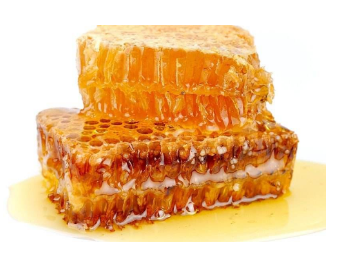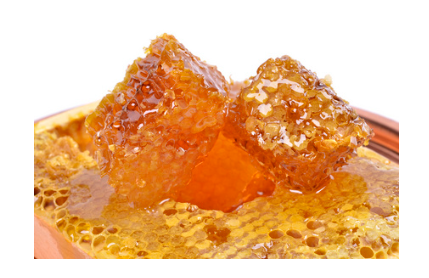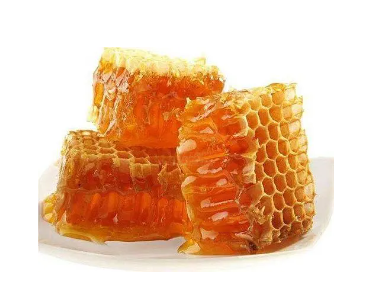With the improvement of people's living standards, the constant updating of consumption concepts, the increasing attention to environmental issues, and the proposal of the concept of "advocating nature", people are paying more and more attention to propolis flavonoids containing natural active ingredients. As a natural substance with multiple physiological activities, propolis flavonoids have become a hot research topic in the development of daily chemical products and beauty and health food both domestically and internationally. Propolis is also regarded as a natural resource with great potential in folk medicine and daily chemical industry. With the development and utilization of deep processing technology for bee products, they are constantly moving towards medical and health products, cosmetics, and their added value is constantly increasing, and the market demand is also growing. China has abundant propolis resources and relatively low prices, which provides favorable conditions and broad prospects for the research, development, and application of propolis. As a natural beauty agent, propolis has been widely used in folk medicine since ancient times. Due to its antioxidant activity, it is added as an important ingredient in skincare formulas. Propolis is non-toxic, safe, soothing, and long-lasting. It can be used for a long time every day and can achieve the best results in beauty and skincare. It embodies the beauty principle of "nourishing from the inside out, nourishing from the root". Beauty ingredients
Propolis contains a large amount of physiological active substances and trace elements, and has a wide range of pharmacological effects. It has excellent antibacterial and antifungal properties, and has significant therapeutic effects on treating ulcerative papules, abscesses, blackheads, and pimples. It can be used as a broad-spectrum preservative and is very suitable for therapeutic cosmetics. Propolis contains flavonoids belonging to the aromatic oxidation heterocyclic compounds, including acacetin, quercetin, galangal extract, resveratrol, quercetin, and quercetin. They have the effects of promoting blood circulation, improving capillary vitality, and delaying skin aging. They are ideal additives for wrinkle and anti-aging cosmetics. Flavonoids have good antioxidant properties and can be applied in skin health and hygiene, absorbing oxygen free radicals and protecting the skin. The Vitamin E contained in propolis can protect unsaturated fatty acids and also act as an antioxidant to prevent damage from fatty acid oxides caused by cell damage or enzyme inactivation. In addition, it can also scavenge free radicals, capture excited oxygen atoms, and prevent cell membranes from being damaged by oxidation. Vitamin E has the effects of delaying photoaging, sun protection, inhibiting sun induced erythema, smoothing the skin, reducing skin wrinkles, moisturizing, and anti-inflammatory. At present, it is used as a functional factor in some skin creams, shampoos, hair conditioners, sunscreen products, lipstick and other cosmetics on the market.

Beauty benefits
Propolis embodies the beauty principle of "treating both the surface and the interior". Taking propolis can increase body balance, supplement nutrients, and achieve true internal health, activate cells, maintain vigorous vitality, thereby improving skin and appearance, achieving the goal of redness, smoothness, and beauty. Modern research has found that a large amount of effective ingredients in propolis can purify the blood, nourish the skin, inhibit the generation of peroxidized lipids, and inhibit tyrosinase activity. Some flavonoids have the ability to eliminate free radicals and efficiently absorb all wavelengths of ultraviolet radiation, which can effectively prevent damage to the skin caused by ultraviolet radiation, thereby protecting the skin, removing spots, and whitening. Propolis has analgesic, hemostatic, anti-inflammatory, anti infective, tissue regeneration promoting, and wound healing effects on skin itching, acne, tinea pedis, burns, and cuts. Meanwhile, propolis can also promote epithelial tissue proliferation and granulation growth, improve subcutaneous tissue blood circulation, and control scar formation. Propolis has good absorption performance in the ultraviolet range and can reduce the radiation of ultraviolet rays, making it an excellent natural sunscreen. The double bonds of unsaturated fatty acids secreted on the skin are prone to oxidation and cause body odor. Propolis has antioxidant properties and is an ideal deodorizing additive that can be used as a skin cleanser. Propolis has antibacterial effects on periodontal pathogens and can be made into propolis toothpaste. It has a comprehensive therapeutic effect on periodontal diseases such as toothache, oral ulcers, and gingivitis. Adding propolis to cosmetics not only moisturizes the skin, removes spots, reduces wrinkles, sunscreen, relieves itching, protects the skin and hair, removes bad breath, but also prevents and treats certain skin diseases. It is also a natural preservative with no side effects. 
Application status
Propolis has a wide range of applications in daily chemicals and is often used as a provider of cosmetic functional factors. In toothpaste, the addition of propolis only requires 0.3% to have a significant antibacterial effect. It has a significant effect on treating oral ulcers and bad breath. Chewing gum made from propolis brings fresh breath and enhances confidence. Propolis is still an ideal additive for cleaning products. As long as a certain proportion of propolis is added, the soap, bath solution, and shampoo produced have certain therapeutic effects on skin itching, inflammation, and various psoriasis. If propolis is added to cosmetics, it can maintain skin moisture and luster, eliminate cracked spots, promote cell regeneration, and play a role in beautifying and moisturizing the skin. Because there are terpenes, aromatic acids, esters and other substances with special fragrance in propolis, it can also be used to make perfume with pleasant fragrance and the effect of expelling mosquitoes and flies. The acne solution made from propolis extract, glycerin, salicylic acid, and menthol has good effects. Since the 1960s, many articles on the analysis of propolis components and their application in cosmetics have been reported abroad, and some countries have also obtained patent rights for related formulas. French cosmetics companies CoW and Orlane both produce various types of propolis cosmetics. Romania's "Fule Wax Cold Cream" is made from propolis ointment, beeswax, lanolin, and whale fat, which has the effect of promoting glandular tissue regeneration, necrotic epidermal shedding, surface renewal, and making the skin soft and moisturized. At present, many cosmetic companies have added flavonoids as sun protection factors to skincare products. The German Beiersdorf Group has added flavonoids extracted from plants to one of its products, effectively inhibiting the photodegradation of sunscreen agents, prolonging their lifespan, enhancing their sun protection effect, effectively resisting the invasion of free radicals on the skin, strengthening the skin defense system, and preventing premature skin aging, which has received praise from users. At present, the daily necessities of propolis on the market include propolis toothpaste, mouthwash, propolis shampoo, hair care shampoo, propolis shower gel, propolis facial cleanser, propolis hand sanitizer, propolis soap, propolis skincare cream, freckle cream, antifreeze, sunscreen, propolis tincture, hair water, prickly heat water, acne solution, and other products. In the cosmetics markets of countries such as France, Germany, Russia, Japan, South Korea, Romania, and Brazil, many high-end cosmetics have added a considerable amount of propolis extract. Unfortunately, there are still very few propolis cosmetics in the Chinese market. China is a beekeeping country in the world, with nearly 7 million bee colonies and abundant propolis resources. The annual production of propolis is nearly 300 tons, and the price is relatively low. Normally, each group of 50-60000 bees produces 0.2 g of propolis per day. In this way, China has the potential to produce over 500 tons of propolis annually, which can become an advantage for China's development of propolis cosmetics.
Shaanxi Huike Botanical Development Co., Ltd. a integrated enterprise which is focus on natural products, plant extract related products and services.We mainly focus on pharmaceutical, functional food, Freeze-dried powder,Natural Pigment,Homology of medicine and food,beverages and other business services.
For more information about inulin, please contact us!
Email:marketing@huikes.com
2024-04-10
Shaanxi Huike Botanical Development Co., Ltd.





